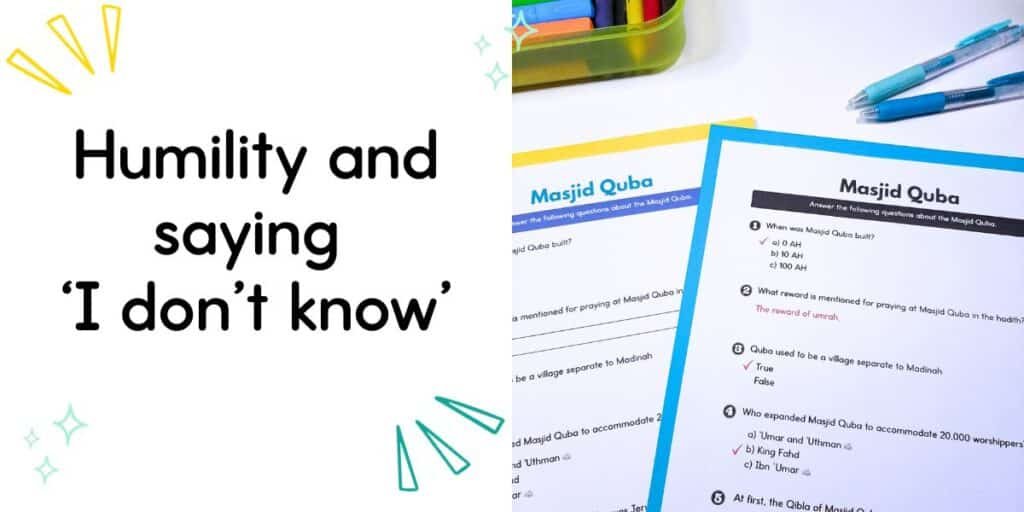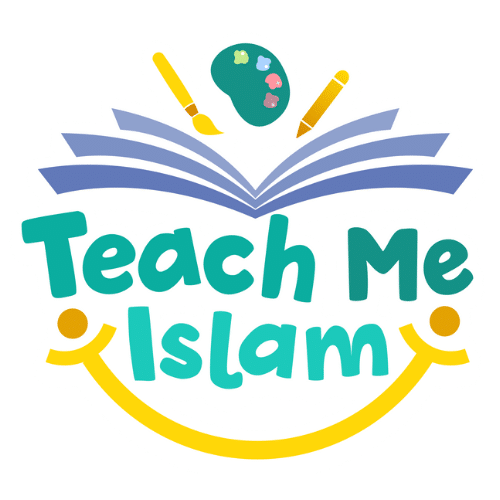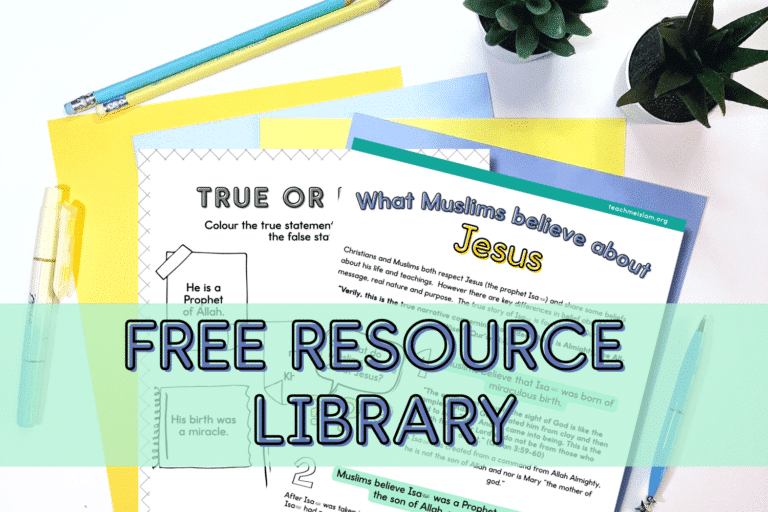There is a lot of homeschooling advice from other communities online. Muslim homeschooling communities are so important because Islamic principles are fundamental to the education of our children. The Qur’an and Sunnah is a unique blessing and their role in all of our lives and specifically our homeschools is key to our success. Here are a few suggestions for ways that you can incorporate Islamic principles into your homeschool.

Prioritising the Quran and Sunnah
The most important step is to make the Qur’an and Sunnah a priority. This can be through time of day, dedicating the early mornings when your kids are freshest to learning Qur’an and Islamic Studies. Or perhaps making sure a good portion of time is spent learning about the Qur’an and Sunnah. This doesn’t have to be exclusive to dedicated lessons, you can learn more about using Islamic content in other subjects here.
You can also prioritise it by making it the lesson that can’t be skipped. Most of us have been there, it’s a busy day, something has cropped up and you’ve had to pare down the school day. Instead of saying, just do your Maths and English, if we say make sure you complete your Islamic Studies, then we are communicating its importance.
As an advice to myself first and foremost, kids do what they see modelled more than what they hear ordered. If they see us prioritise it ourselves, then they will do the same.
Another way to prioritise the Quran and Sunnah is to use it as the primary source material. For example, if you are studying about mountains, study the references to mountains from the Qur’an and Sunnah first before delving into geography and science.
Referencing from the Quran and Sunnah
When we cite from the Qur’an and Sunnah, it’s vital that we provide references. For the Qur’an that’s the surah and ayat number and for hadith the collection, book and reference number. This way kids expect evidence and references every time they learn about Islam.

Checking for authenticity
We are enormously blessed as Muslims that our deen is preserved in the way that it is. Not only do we have the Qur’an, the speech of Allah that is preserved perfectly. We also have detailed accounts of the life of our Messenger (may Allah raise his rank and grant him peace). In addition to all this, the ahadith are graded for authenticity. This regard for authenticity is a core part of our deen. We do not narrate everything we hear and try to narrate accurately. As such one of the important Islamic principles to incorporate into our homeschools is the importance of checking for authenticity.
A way to integrate this into our homeschools is to clearly differentiate between information that is authentic and information that cannot be verified. We can begin with the most authentic information for example as mentioned previously, begin a unit study with ayat from the Qur’an on the topic.
Another way is to include the authenticity of ahadith when we reference them. Including the words sahih and hasan after ahadith creates an expectation for kids and shows the importance of authenticity.
Additionally, when using reference material like books and articles, you could check the information. Fact-checking is an essential skill in today’s world where there is an abundance of information available online and publishing has become easier than ever.

Humility and saying ‘I don’t know’
There is a famous report about when the great Imam Malik (may Allah have mercy on him) and his humility and fear of Allah.
Abdur Rahman ibn Mahdi reported: I was with Malik ibn Anas, may Allah have mercy on him, as a man came and he said, “O Abu Abdullah, I have come from a distance of six months travel. The people of my land have an issue to ask you about.” Malik said, “Then ask.” The man asked him about the issue and Malik said, “I do not know it.” The man was speechless, as if he had thought he came to someone who knew everything. The man said, “So what do I say to my people when I return to them?” Malik said, “Say to them that Malik said: I do not know.”
Ibn Wahb said, “I heard him many times saying: I do not know.”
Source: Jāmi’ Bayān al-‘Ilm 2/838
It’s always best to just say that we don’t know or we are not sure. Honestly, kids (and adults) respect when you are clear about what you know and what you don’t.

Respect for knowledge and its teachers
Abdullah Ibn Mubārak (d. 181H, rahimahullāh) said: “Whoever belittles the scholars has lost his Hereafter. Whoever belittles the rulers has lost his worldly affairs. Whoever belittles his brothers has lost his honour.” (See Siyar of Adh-Dhahabī, 8/408)
Another key way to integrate Islamic principles into our Muslim homeschools is to teach respect for knowledge and its teachers. It’s a massive topic that can’t possibly be covered here but examples of how you can instill this respect into your child’s education include:
- Teach about the lives of the scholars
It’s from Muslim manners to outline the life of the scholar before studying his book. You will usually hear this is the first class of a series of classes or see it in the beginning of a book. This often includes key facts such as their birthplace, early life, where they studied, who their scholars were, who their students were, names of their significant works and the date if their death. You can download a free biography of Imam Bukhari here.
- Sit close to the teacher
- Ask relevant thoughtful questions
- Consistent attendance
- Address respectfully
There is a wonderful talk about the manners of students when seeking knowledge here. The second part is specifically about manners towards Shuyookh and includes the following points:
- Etiquettes of how we should be with the scholars when seeking knowledge.
- How you should visit the scholar.
- The appearance you should have.
- The etiquette of walking with the scholar.
- The etiquette of sitting with the scholar.
- An example of the great respect Imām ash-Shāfi’ī had for Imām Mālik (رحمهم الله).
- The manner in which the student addresses the scholar.
- Actions the student should refrain from while in the presence of the scholar.
- Benefits from the āyah, “…and consult them in the affairs. Then when you have taken a decision, put your trust in Allāh, certainly, Allāh loves those who put their trust (in Him).” [Sūrah Āl ‘Imrān 3:159].
- Patience upon any strictness or harshness that may come from the scholar.
- Making du’ā for the scholars, being grateful for their knowledge and spreading it amongst the people.

Free resources to help you teach kids about Islam
I hope you have found these tips for instilling Islamic principles into your child’s education helpful. If you would like to get a FREE resource to help connect Muslim kids to the Qur’an then join the mailing list here to download a fun activity pack about one of the Animals in the Qur’an, the ant, and gain access to the free resource library.
Here are some other blog posts you may be interested in:
5 types of Ramadan activities for young kids to try this Ramadan






